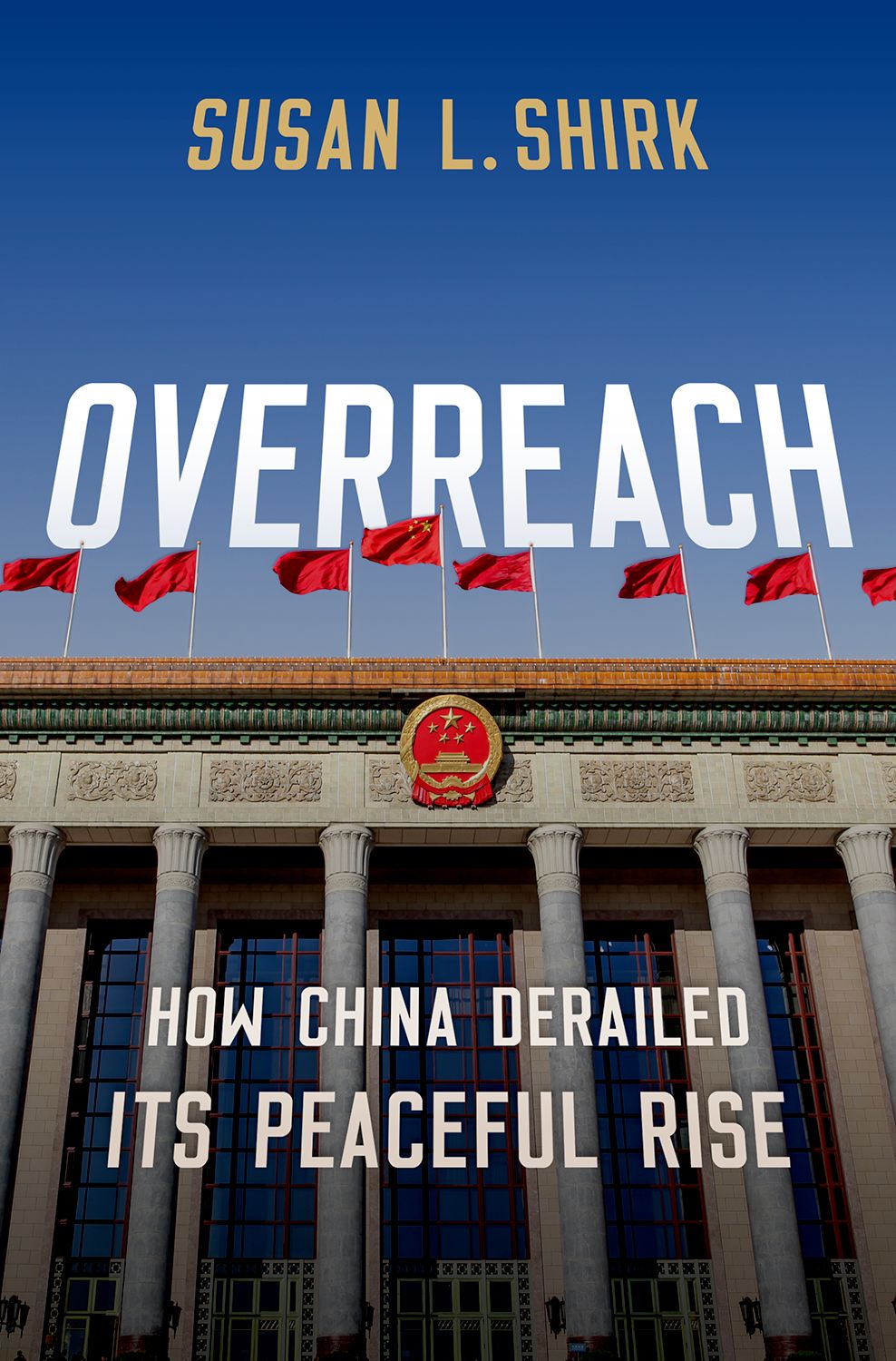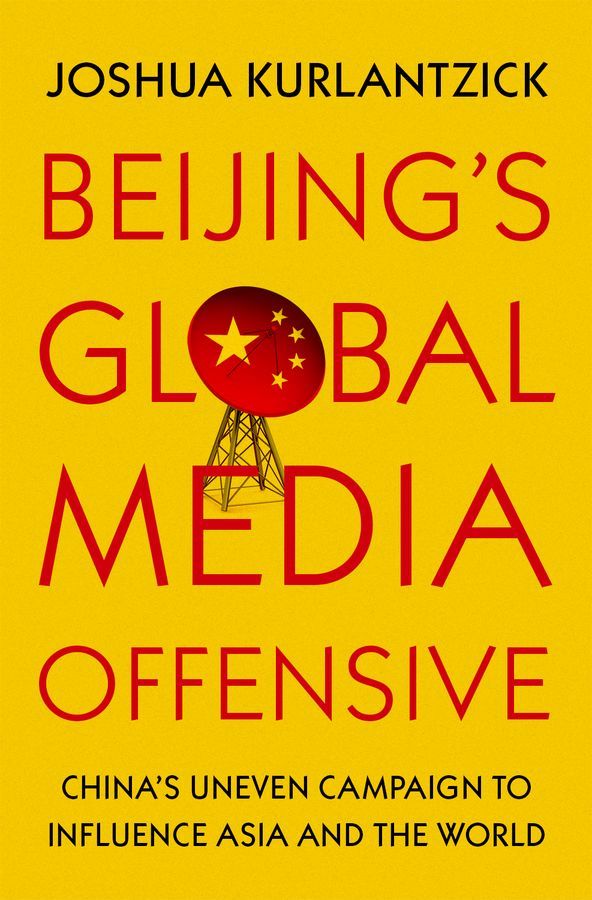In 2014, Chinese President Xi Jinping called for a worldwide effort to strengthen China’s national brand: “We should increase China’s soft power … and better communicate China’s message to the world,” he said.
Since then, China has unquestionably become more powerful, but also less popular. That is the fundamental paradox of China’s meteoric rise, and it’s a dynamic that is most pronounced in Europe.
Over the past two decades, China has spent record sums on influence operations, public diplomacy and other soft power efforts. According to an estimate by David Shambaugh, a leading China expert at George Washington University, the country spends at least $10 billion annually on public diplomacy, which is significantly more than any other country (and, for comparison, more than the combined annual global advertising budgets for Walt Disney, Coca-Cola and McDonald’s).
Since [2014], China has unquestionably become more powerful, but also less popular.
On top of this, the country has spent almost $1 trillion on the Belt and Road initiative, a global infrastructure project which also clearly has diplomatic goals.
Much of this investment in soft power has been spent in Europe, where China has poured money into infrastructure, but also covert advertising campaigns, newspaper supplements and donations to museums, art institutions and educational initiatives.
So far, the returns have been paltry. In a global poll by Pew Research Center, negative views of China have reached historic highs, particularly in Europe. In Germany, views of China were net positive in 2002, with 46 per cent having a favourable opinion, versus 37 per cent with a negative opinion. Now, 71 per cent of Germans have a negative opinion of China.
“There has been a shift in my home country, Germany, towards China. It’s much more critical than a few years ago,” said David McAllister of Germany’s Christian Democratic Union at the Brussels Forum 2022.
It’s a pattern that repeats across Europe: in the Netherlands, Sweden, France, Spain and Italy, vast majorities have negative views of China.
Chinese nationalists and their diminishing cadre of friends in the West have tried to dismiss this backlash as a racist reaction to the pandemic. While there’s certainly been plenty of chauvinist talk of the “Wuhan virus” among European nationalists, China’s problems are mostly self-inflicted, according to several authors who study Chinese influence operations.

In Susan Shirk’s Overreach: How China Derailed Its Peaceful Rise (Oxford University Press, October 2022), she writes that “a broad international backlash is snowballing” against China. Shirk, a Deputy Assistant Secretary of State in former United States President Bill Clinton’s administration, explains why China’s aggressive diplomatic strategy has been counter-productive in most democracies.
According to Shirk, the backlash did not begin in 2020, but in 2018. It has little to do with Covid, and everything to do with human rights.
The collapse in support of China across Europe was driven primarily by concerns over Chinese crackdowns on democracy activists in Hong Kong, the alarming news of re-education camps for Uyghur Muslims in Xinjiang and Xi Jinping’s implementation of an aggressive global strategy of so-called “wolf warrior” diplomacy.
Shirk explains how Chinese campaigns in the West have too often reflected a type of belligerent jingoism that “may stir nationalist emotions inside China, but provoke fear and loathing outside China.” Xi Jinping and his lackeys in Beijing have spent too many years drumming up nationalist sentiments domestically and often seem unable to adjust their message for a global audience.
China wants to signify stability and harmony in contrast to the chaotic democracies of the West. But when Xi Jinping warns current US President Joe Biden that “those who play with fire will be burned by it,” it hardly makes China look stable; it makes Xi come across as a movie villain.
 Susan Shirk | Photo: Jordan Engle
Susan Shirk | Photo: Jordan Engle
The aggressive tone of most Chinese influence operations has led to tangible setbacks. In March 2021, the European Union joined the US and Canada in an unprecedented move to impose sanctions on China for the human rights abuses against Uyghur Muslims in Xinjiang. In another landmark move at the Nato summit in Madrid this summer, China was declared a security threat to the alliance. Chinese industry has also been punished, with European countries increasing scrutiny of Chinese companies, banning Huawei and killing a major trade deal with China last year.
Such setbacks could undermine Xi Jinping’s ability to consolidate power, according to Shirk. More Chinese elites now ask themselves how China lost so many friends in the West and are looking for a scapegoat. “Privately, many Chinese experts blame Xi Jinping for provoking the animosity towards China,” she writes.

Joshua Kurlantzick comes to a similar conclusion in Beijing’s Global Media Offensive (Oxford University Press, forthcoming March 2023), a sobering analysis of the limited impact of Chinese propaganda in the West.
Kurlantzick, who wrote one of the first books on Chinese soft power in 2007, makes it clear that China “increasingly and openly wants to reshape the world in its image,” with the goal of surpassing the United States in a competition for global leadership.
While too many other surveys of China’s influence operations settle for alarmist reporting of anecdotal evidence, Kurlantzick reminds us that Beijing’s “increasingly sour, assertive Chinese nationalism” has often been counter-productive.
Kurlantzick claims that the disinformation campaigns are often unsophisticated and easy to expose.
“Beijing’s influence efforts became so obvious and unwelcome that they sparked an intense blowback, leading to souring public opinion toward Beijing,” he writes. He also points out that Xi’s alignment with Russian President Vladimir Putin “made China much more unpopular in countries across Eastern and Central Europe – which once viewed Beijing favourably.”
 Joshua Kurlantzick | Photo: CFR
Joshua Kurlantzick | Photo: CFR
Another example of an own goal in China’s soft power offensive is the massive crackdown on domestic tech companies.
China’s new generation of charismatic tech CEOs, like Jack Ma of Alibaba and Jean Liu of Didi Chuxing, were arguably the country’s greatest soft power assets. They charmed the global business elite at Davos, appeared on the covers of business magazines and helped rebrand China as a vibrant hub of technological innovation.
But Xi Jinping perceived their vast wealth and public clout as a threat. His regulatory crackdowns and the massive fines imposed on tech companies humiliated these tech leaders, who have mostly vanished from the global stage.
Instead, Beijing’s nation-branding efforts now have to rely on clumsy messaging from belligerent nationalists. “Doomsayers suggesting that Beijing’s influence is, right now, exceptionally skilful and effective are wrong. China has built a giant influence and information apparatus but currently wields it clumsily and often poorly,” Kurlantzick concludes.
For a more sanguine take on China’s propaganda efforts, Maria Repnikova, a scholar of global communication, offers the brief but thought-provoking book Chinese Soft Power (Cambridge University Press, April 2022). Her book is an excellent survey of the impact of China’s wide-reaching diplomatic efforts, and she wants to refute the idea that their soft power offensive has been futile.
However, her examples of the places where Chinese propaganda has succeeded are mostly not in Western democracies, but in countries with authoritarian or illiberal governments, such as Kenya and Kazakhstan.
 Maria Repnikova | Photo courtesy of Maria Repnikova
Maria Repnikova | Photo courtesy of Maria Repnikova
I’m not convinced it’s meaningful to describe many of these efforts – predatory loans for infrastructure and coercive bullying or bribes to accommodate Chinese state media – as soft power.
Earlier this year, I had a chance to bring this up with Joseph Nye, the Harvard political scientist who popularised the term soft power in the 1990s. He argued that China’s occasional ability to, say, force a German publisher to withdraw a children’s book or a British film producer to adapt to Chinese censors, is not a sign of soft power, but of conventional hard power. Soft power is fundamentally about persuasion and mutual attraction, while hard power is about coercion. These distinctions matter because they measure different skill sets.
If China hopes to compete with the United States not just economically and militarily, but also in terms of soft power, they need to fundamentally rethink their costly propaganda strategy. The aggressive jargon of most Chinese nationalists in the Xi era is alienating potential partners.
Since Mao, the Chinese government has bragged on propaganda billboards across the country: “We have friends all over the world.”
This may still be true. But in Europe, China has fewer friends than they had five years ago.
Sign up to The Parliament's weekly newsletter
Every Friday our editorial team goes behind the headlines to offer insight and analysis on the key stories driving the EU agenda. Subscribe for free here.